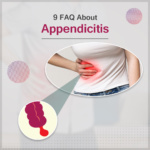We all love to relish junk, oily, and spicy foods even though if we know that they are bad for our overall health. It has also been observed that diseases that were once uncommon have become frequent due to changes in our basic diet, and one such condition is piles. Around 75% Indian population is impacted by piles due to a lack of seriousness more than a lack of awareness.
One of the most readily preventable and treated illnesses is piles. Choosing the appropriate diet is a simple method to avoid or treat piles. People who eat unhealthy foods and live unhealthy lifestyles are more likely to develop it.
 About Piles
About Piles
Piles, often known as Hemorrhoids or Mulvyadh, are swollen, inflamed blood vessels surrounding the anus or lower rectal areas. Symptoms of piles include:
- A painful lump around the anus.
- Difficult bowel movements.
- Painless bleeding during bowel movements.
- Itching or irritation around the anal region.
Many factors contribute to the formation of piles, but the most common reason is excessive pressure on the veins around the anus or lower rectum.
The major purpose of the Indian food plan for piles is to prevent further issues by reducing straining during bowel movements. People who have piles should eat fiber-rich foods since they bulk up the stool and support healthy bowel movements, avoiding and treating piles.
The following foods are said to be healthy for piles:
- Leafy Vegetables:
Leafy vegetables are nutrient-dense, high in antioxidants and fiber, which is beneficial for stomach health and digestion. One can include vegetables like Spinach, fenugreek, celery, radish greens, mustard greens, and other vegetables in their diet.
- Whole Grains:
Brown rice, oatmeal, bran cereals, whole grain flour, and multi-grain bread are examples of whole grains that are helpful in piles. These foods are high in fiber, which also helps bulk up the stool and encourages bowel motions.
- Fresh Fruits:
They are high in fiber, vitamins, and minerals, especially when consumed with their skin. Fresh fruits, such as apples, grapes, bananas, and oranges, helps to improve digestion and encourage regular bowel movements.
- Sprouts:
Sprouts are abundant in fiber, vitamin C, proteins, and calcium. They are extremely beneficial for treating piles because they contain all the above nutrients. One cup of steamed or boiled sprouts per day can help relieve intestinal discomfort. On the other hand, people suffering from piles should not consume raw sprouts as it can aggravate the symptoms of piles.
- Curd or Buttermilk:
Curd or buttermilk is high in probiotics, which help to replenish gut microorganisms and maintain digestive health. Incorporating curd or buttermilk into your regular diet will boost your immunity and digestive health, alleviating piles symptoms.
- Water:
If you don’t drink enough water, the dietary changes described above may not work. Water aids in digestion, absorption of nutrients, softening the gut and preventing constipation and piles. As a result, drink at least three to four litres of water each day.





